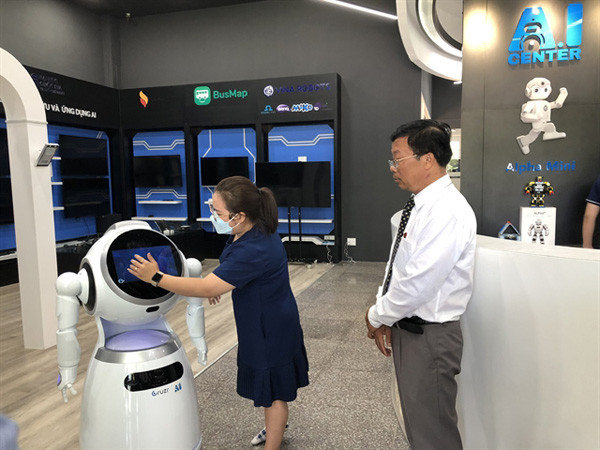
Even many schools training economics majors turning into multidisciplinary schools are starting to open majors in technology.
However, education experts wonder if the conditions of the training program, teaching staff, and material facilities are guaranteed.
Rector of the University of Economics HCM City Su Dinh Thanh said the university would open many new disciplines including Financial technology (Fintech), Marketing technology (Martech), Digital business, Robots and artificial intelligence (Robot & AI), Logistics technology (Logitech).
In addition, the university would launch new integrated dual-division, dual degree programmes namely political economy and law, and local management.
Although the school would keep the admission approaches stable as in 2022, it would increase the quota for the admission method according to the results of the high school graduation exam.
Meanwhile, the Admission Council of the Vietnam National University-HCM City has approved some new undergraduate majors at its member universities.
For instance, the University of Information Technology has piloted an artificial intelligence major, while the University of Natural Sciences has opened management of natural resources and environment, technology of physics and electronics and informatics.
The An Giang University has launched quality assurance and food safety, veterinary medicine and traditional medicine and nursing.
Thai Doan Thanh, vice principal of the HCM City University of Food Industry, said the university planned to open five new majors this year, including financial technology, data science, law, logistics and supply chain management, and e-commerce.
Similarly, many universities in the northern region have also started to open many new fields of study, many of which are associated with digital technology.
Hanoi University of Industry plans to launch five new majors namely renewable energy, smart manufacturing engineering, electronic engineering technology, bio-medicine, and linguistics.
Foreign Trade University will open two new majors, namely political economy and international political economy, to be trained at the headquarters.
According to the latest report of the Ministry of Education and Training, groups of majors most chosen by candidates last year were computer and information technology, business and management, and technical technology.
Along with opening a number of new majors to meet social needs, some universities also stopped enrollment in some majors in which no students have enrolled for years.
According to education experts, universities offering new majors related to technology and digitisation are in line with the country’s socio-economic development targets and digital transformation trend.
Tran Anh Tuan, a human resource forecaster and vice chairman of the HCM City Vocational Education Association, said occupations were tending to change according to the needs of Industry 4.0 and associated with the digital era, so there had been shifts between types of employment nowadays not like that before.
There had been many new occupations in the labour market. Therefore, schools must self-adjust and offer digital technology-related majors to well prepare for students in this era such as artificial intelligence (AI), e-commerce, public relations, event organisation, and digital marketing.
“In addition, businesses are integrating business and technology,” he said.
As a result, majors in technology management, and medical engineering management were being launched, he said.
Pham Thai Son, director of the Centre for Admissions and Communication of the HCM City University of Food Industry, said technology trends were dominating while learners also enrolled in majors which are hybrids between technology and other technical disciplines such as food business administration, digital marketing, financial technology, data science and AI.
Along with new training programs, schools should have innovation and coordination of talented entrepreneurs, engineers, and people who have experienced and succeeded in many areas, he said.
Universities which are granted self-autonomy to open majors and set admission quotas must meet the Ministry of Education and Training’s regulations on opening training majors and regulations on determining targets, according to experts.
They also advised that before committing to a major, learners should consider several factors, including their personalities and interests, the programme cost and the employment rates in that field of study.
Source: Vietnam News